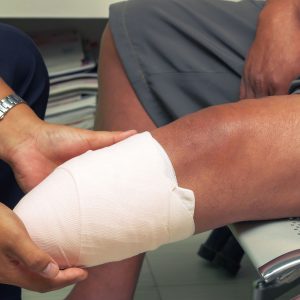Understanding Amputation Injuries and the Legal Recourse Available

Amputation injuries are among the most devastating and life-altering experiences a person can endure. Whether resulting from a traumatic accident, a medical condition, or a surgical necessity, the loss of a limb profoundly impacts a person’s physical abilities, psychological well-being, and overall quality of life. In many cases, these injuries may occur due to negligence, accidents, or other circumstances that could entitle the victim to legal recourse. Understanding the nuances of amputation injuries and the legal options available is crucial for those affected.
Causes of Amputation Injuries
Amputation injuries can arise from various situations, with the most common causes including:
1. Traumatic Accidents: These can occur in numerous settings, including motor vehicle accidents, workplace incidents, or accidents involving heavy machinery. For instance, construction workers are at a higher risk of amputation due to the nature of their work with dangerous equipment.
2. Medical Malpractice: In some cases, amputation may be the result of medical negligence. This could involve misdiagnosis, delayed treatment, or surgical errors that leave amputation as the only option.
3. Product Defects: Defective products, particularly machinery, tools, or medical devices, can lead to severe injuries, including amputations. Manufacturers may be held liable if a product is found to be unsafe or if it lacks adequate warnings and instructions.
4. Disease and Infection: Although not always directly linked to negligence, diseases like diabetes or severe infections can lead to necessary amputations. However, if a healthcare provider failed to diagnose or properly treat a condition that led to amputation, there could be grounds for legal action.
The Impact of Amputation Injuries
The consequences of an amputation injury extend far beyond the physical loss of a limb. Victims often face significant challenges, including:
1. Physical Rehabilitation: Extensive physical therapy is usually required to help the individual adapt to the loss and learn how to use prosthetics or other assistive devices.
2. Psychological Trauma: The emotional and psychological impact of losing a limb can be profound, often leading to conditions such as depression, anxiety, and post-traumatic stress disorder (PTSD).
3. Financial Strain: Amputation injuries can lead to substantial medical bills, ongoing therapy costs, and loss of income if the individual is unable to return to work. In some cases, home modifications and mobility aids are also necessary, further increasing financial burdens.
Legal Recourse for Amputation Injuries
Victims of amputation injuries caused by negligence or wrongful acts may be entitled to seek compensation through various legal avenues:
1. Personal Injury Claims: If the amputation resulted from an accident due to someone else’s negligence (e.g., a car accident or a workplace injury), the victim might file a personal injury lawsuit. Compensation can cover medical expenses, lost wages, pain and suffering, and rehabilitation costs.
2. Workers’ Compensation: If the injury occurred on the job, the victim might be eligible for workers’ compensation benefits. This typically covers medical expenses and a portion of lost wages but may not fully account for pain and suffering or long-term disability.
3. Medical Malpractice Lawsuits: In cases where amputation was caused by a healthcare provider’s negligence, the victim could pursue a medical malpractice claim. This could involve errors in diagnosis, surgical mistakes, or failure to treat an infection promptly.
4. Product Liability Claims: If a defective product caused the injury, the manufacturer, distributor, or retailer might be held liable. Product liability claims can provide compensation for damages caused by unsafe or malfunctioning products.
5. Wrongful Death Claims: If the amputation leads to death, the victim’s family may file a wrongful death lawsuit against the responsible parties. This can help recover funeral expenses, loss of income, and compensation for emotional distress.
Seeking Legal Assistance
Navigating the legal landscape following an amputation injury can be complex and overwhelming. It is essential to consult with an experienced personal injury attorney who specializes in amputation cases. An attorney can help gather evidence, assess the full extent of damages, and negotiate with insurance companies or opposing counsel to ensure that the victim receives the compensation they deserve.
Amputation injuries are life-changing events that come with significant physical, emotional, and financial challenges. Understanding the legal recourse available is crucial for victims to secure the compensation needed to rebuild their lives. Whether through personal injury claims, medical malpractice suits, or workers’ compensation, those affected by amputation injuries have legal options that can help them navigate the aftermath and move forward with the support they need.
If you or someone you care for have been a victim of an accident which resulted in an amputation, call the personal injury lawyer firm of Goidel & Siegel to fight for the compensation you deserve.
56 W. 45th Street 3rd Floor New York, NY 10036